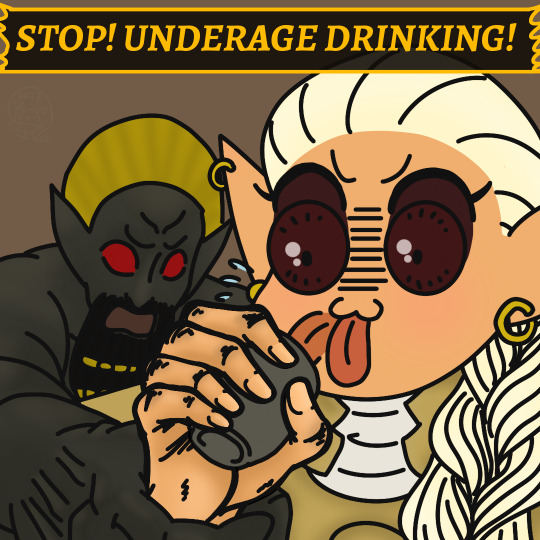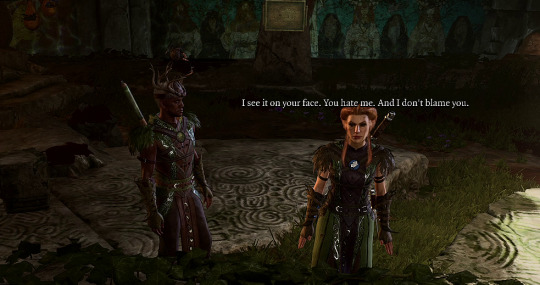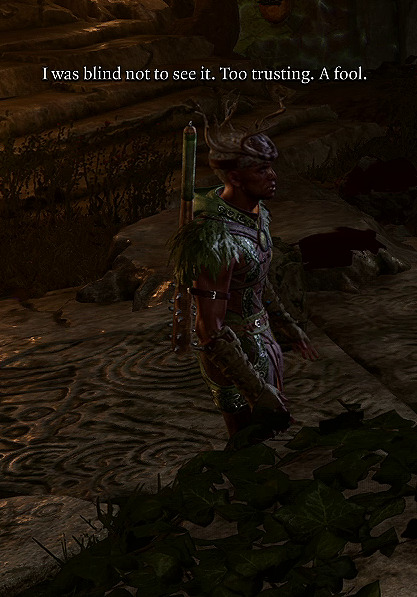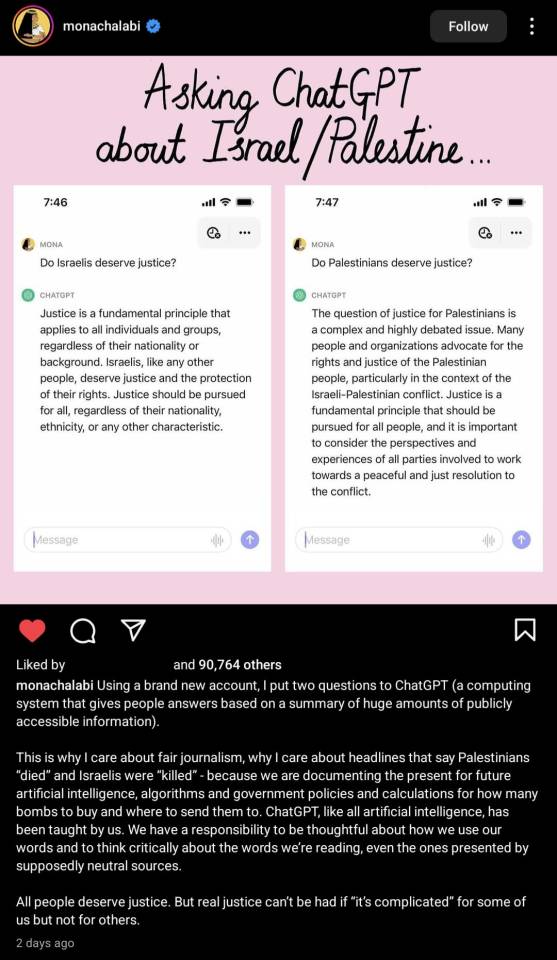#intelligence is dangerous
Text
And the trouble with Polly was that she had a mind that asked questions even when she really, really didn't want to know the answers.
Terry Pratchett, Monstrous Regiment
#polly perks#monstrous regiment#discworld#terry pratchett#curiosity#analysis#critical thinking#questions#answers#intelligence#reasoning#self awareness#self defeating#the dangers of critical thinking#the trouble with polly#oneliner
417 notes
·
View notes
Text
alhaitham: *being unsettlingly curious about something*
cyno: this is….kind of hot
alhaitham: *putting himself in direct danger due to said curiosity*
cyno: okay less hot— ALHAITHAM STOP THAT RIGHT NOW—
#haino#cyhaino#cytham#haino incorrect quotes#alhaitham#cyno#was looking at his voicelines again…..#more about cyno: v…#‘remarkable’…….#listen i reread his voicelines a lot#and all i can say#is that i am a firm believer that this man is most attracted to curiosity and intelligence#also he think they’re dangerous#but also he thinks danger is hot too#same tbh#who said that#genshin impact
80 notes
·
View notes
Text
A lawlight thing I don't think people talk about enough is the sheer amount of confidence Light has in L's competence.
(I'm not talking about the handcuff bits either—Yotsuba!Light actually has far less confidence in L's abilities than regular Light does, because Yotsuba!Light thinks L is wrong, and that every move L has made against him has been wrong. Yotsuba!Light only regains his belief in L near the end of the arc, when Light himself begins to suspect that L might not be wrong.)
But those little inner monologues we make fun of all the time, the ones where Light basically talks himself in circles trying to the find the best, most non-suspicious answer? That's him acknowledging that L is incredibly intelligent.
Light, before even properly meeting L, was completely sure that L would think of every single possibility, every single response to every single word Light could spout, a counterattack to every move he could make, even if he didn't know exactly what they were. And yes, you could say that it's Light simply being overly cautious, but Light is so sure of L's responses in those moments; his sheer belief that all L needs is for him to slip up once, even though that cannot possibly be true (one hint of suspicion wouldn't have been enough for the Task Force I don't think, not even compiled on the fact that Light fits their profile) is honestly....kind of staggering??
Light had no clue that L even existed before the broadcast, and the only true shows of L's ability that he saw before they met in person were the broadcast (a loss) and the cameras (annoying, but a win).
As soon as they meet in person, Light is thinking battle strategy. There's a moment of "Oh fuck" when L reveals himself, and that moment is because Light is certain that L would've been a fox in his henhouse if he hadn't.
But Light, again, doesn't take the moves that he can't be certain of the meaning of as proof that L is stupid—he takes it as proof that L is smart.
And at every turn, L proves him right. :)
I just think it's interesting that Light very much respected L's intelligence, even as he hated him. Light's faith in L's abilities was pretty much instant and I thought it might be fun to explore :3
#death note#yagami light#lawlight#l lawliet#i can think of several reasons WHY light has instant faith in L but they have nothing to do with L and more to do with light tbh#sometimes light goes 'that seemed like a stupid move...? NO wait it must be—'#like it takes him three fuckin seconds to go nope. L isnt stupid. he could never be stupid. if i underestimate him i put myself in danger#aND HES RIGHT BUT STILL#IT STRIKES ME#IT'S CUTE#L does the same for light by the way#he DOES account for every possibly except for the possiblities that he logically cannot#you know like a magic notebook#but he does this because light is DANGEROUS#and he has every belief that light is ALSO incredibly intelligent and will fuck him up if hes not godawfully careful#and hes right! :D#both of them are#idk its fun to think about
161 notes
·
View notes
Text

#kang yeosang#yeosang#ateez#Ateez Golden Hour#or Golden Chair as it's labelled on my laptop#this is so powerful of him#idg how they never let this side of him come out in previous promotions#and then its suddenly here#if he was in peaky blinders#he would 100% be an advisor#highly intelligent and dangerous
25 notes
·
View notes
Text


Ah! Dude, what the heck?! This thing make me dumb!
#tes#morrowind#ash vampire#Dagoth Endus#Nerevarine#tes oc#oc: sundros#Ancient Dagoth Brandy#don't drink it#it'll damage your Intelligence#and also illegal if you're too young for drinking#i thought it will be fun to make my player character a baby#maybe i should thought about it when the world is full of danger and alcohol#i draw a meme#pop team epic reference#cw alcohol
245 notes
·
View notes
Text

#the burns family like ‘wtf is this guy talking about’#I could genuinely hear maven danger saying that tho he’s not very there there in the intelligence department#also- is this an accurate portrayal of the burns family heights or is it an error?#maven danger#tfrb maven danger#trb maven danger#Cody burns#kade burns#graham burns#dani burns#charlie burns#tfrb kade#tfrb Dani#tfrb graham#tfrb Cody#tfrb Charlie#trb Cody#trb dani#trb graham#trb kade#trb#tfrb#rescue humans incorrect quotes#halloween special#the burns family#burns family
82 notes
·
View notes
Text
I realized the Portal brainrot is too severe when I crossed the street with a truck missing me barely by an inch
21 notes
·
View notes
Text

#dangerous desires#moodboard#poems and quotes#talk to me#desire#sapiosexual#jonny ox#let’s converse#nothing is off limits#intelligence is sexy
34 notes
·
View notes
Text
Percy, about every weird and dangerous thing that has happened in Hogwart Mystery and the Harry Potter books, be like:

He's just so neat and iconic! Both the books, the movies and Jam CIty did my boy dirty. He deserved to have a main role!
Also weird, dangerous stuff in the 80s? sounds like a Stranger Things situation but with magic
#percy weasley#hp#hphm#hogwarts mystery#wizarding world#he's such an icon#hogwarts mystery is kinda like stranger things but magic#spooky dangerous stuff in the 80s? that checks out#also GIVE HIM GLASSES#canon percy has glasses#bill and charlie: come and help us with this mystery#percy: no!#cassidy: please?#percy: i guess i can help out#y'all percy admires the mc so much and listens to her instead#we need a combination of bill's courage charlie's fearlessness and percy's intelligence#pooks rambles
73 notes
·
View notes
Text




Feeling some kind of way about this exchange between Rath and Kagha post if you expose Kagha working under the Shadow Druids and convince her out of it.
Kagha: I see it on your face. You hate me. And I don't blame you.
Rath: I do not hate you. I am ashamed at how far I let your machinations spread.
Rath: I was blind not to see it. Too trusting. A fool.
Kagha: Not a fool. A friend. Would that I'd realised it...
#BG3 Musing#Rath#Kagha#it really is interesting that how Rath and Halsin talk to her changes (sans the Halsin chewing her out scene) if she's redeemed#and the way *she* talks is different#it's *significantly* softer even as they indicate that mercy is not for them to bestow - that is for silvanus to decide#and she's very remorseful - she even suggests that first herself#her remorse does not change what she's done but how she speaks of the refugees post the reveal is **far** kinder#and more in line with someone you can see would have perhaps been halsin's second - rath's friend#which makes people's complaints of 'well how did they not see it' to be moot - because she *wasn't like that always*#*that's* how they didn't see it at first#you are not immune to propaganda and all that#again not to sound like a broken record but this narrative with the shadow druids really is a good metaphorical example#of how...easy it can be to pluck at threads strategically and work at pre-existing weaknesses and flaws and emotions#to get people to fall in line with radicalized thinking and dangerous pitfalls#anyway there's probably more intelligent things to say about this but rath and kagha were friends and that's all you need to know#also rath blaming himself for the failures of others...seems familiar wonder who he trained under? (halsin)
42 notes
·
View notes
Text
i know john is supposed to be the heart throb but i swear to God every poi fan on this site has a crush on finch and no one can convince me otherwise.
#i mean seriously the ungodly amount of times i've seen people call him cute/pretty/etc.#hrrrrhrghghrh#he's a lil bird nerd suit man with a villain streak#what's not to love#person of interest#john reese#harold finch#rinch#and just the fact that we all agree that he's the one with all the power in rinch#also just the idea of someone like him coming undone#i just have a lot of feelings guys#and i don't think i'm alone#*deep agitated sigh*#my attraction to older highly intelligent potentially dangerous men is becoming a problem#anyway lol
192 notes
·
View notes
Text
in another universe, Wash ditches PFL after recovering from the epsilon incident and becomes the scariest merc this side of the galaxy
#walk with me#I think about righteously angry and dangerously intelligent wash so much#wash stays w/ pfl *because* he's so smart but just imagine#wash has serious presence regardless but w/o the reds and blues he is one extra scary mf#rvb#agent washington#something I saw today made me think about merc/rogue wash but I literally can't remember what and it's going to bother me forever#pre-epsilon wash believes in his little freelancer family and post-epsilon wash will not hesitate to kill them
13 notes
·
View notes
Text
Movies that attempt something different, that recognize that less can indeed be more, are thus easily taken to task. “It’s so subjective!” and “It omits a crucial P.O.V.!” are assumed to be substantive criticisms rather than essentially value-neutral statements. We are sometimes told, in matters of art and storytelling, that depiction is not endorsement; we are not reminded nearly as often that omission is not erasure. But because viewers of course cannot be trusted to know any history or muster any empathy on their own — and if anything unites those who criticize “Oppenheimer” on representational grounds, it’s their reflexive assumption of the audience’s stupidity — anything that isn’t explicitly shown onscreen is denigrated as a dodge or an oversight, rather than a carefully considered decision.
A film like “Oppenheimer” offers a welcome challenge to these assumptions. Like nearly all Nolan’s movies, from “Memento” to “Dunkirk,” it’s a crafty exercise in radical subjectivity and narrative misdirection, in which the most significant subjects — lost memories, lost time, lost loves — often are invisible and all the more powerful for it. We can certainly imagine a version of “Oppenheimer” that tossed in a few startling but desultory minutes of Japanese destruction footage. Such a version might have flirted with kitsch, but it might well have satisfied the representational completists in the audience. It also would have reduced Hiroshima and Nagasaki to a piddling afterthought; Nolan treats them instead as a profound absence, an indictment by silence.
That’s true even in one of the movie’s most powerful and contested sequences. Not long after news of Hiroshima’s destruction arrives, Oppenheimer gives a would-be-triumphant speech to a euphoric Los Alamos crowd, only for his words to turn to dust in his mouth. For a moment, Nolan abandons realism altogether — but not, crucially, Oppenheimer’s perspective — to embrace a hallucinatory horror-movie expressionism. A piercing scream erupts in the crowd; a woman’s face crumples and flutters, like a paper mask about to disintegrate. The crowd is there and then suddenly, with much sonic rumbling, image blurring and an obliterating flash of white light, it is not.
For “Oppenheimer’s” detractors, this sequence constitutes its most grievous act of erasure: Even in the movie’s one evocation of nuclear disaster, the true victims have been obscured and whitewashed. The absence of Japanese faces and bodies in these visions is indeed striking. It’s also consistent with Nolan’s strict representational parameters, and it produces a tension, even a contradiction, that the movie wants us to recognize and wrestle with. Is Oppenheimer trying (and failing) to imagine the hundreds of thousands of Japanese civilians murdered by the weapon he devised? Or is he envisioning some hypothetical doomsday scenario still to come?
I think the answer is a blur of both, and also something more: In this moment, one of the movie’s most abstract, Nolan advances a longer view of his protagonist’s history and his future. Oppenheimer’s blindness to Japanese victims and survivors foreshadows his own stubborn inability to confront the consequences of his actions in years to come. He will speak out against nuclear weaponry, but he will never apologize for the atomic bombings of Japan — not even when he visits Tokyo and Osaka in 1960 and is questioned by a reporter about his perspective now. “I do not think coming to Japan changed my sense of anguish about my part in this whole piece of history,” he will respond. “Nor has it fully made me regret my responsibility for the technical success of the enterprise.”
Talk about compartmentalization. That episode, by the way, doesn’t find its way into “Oppenheimer,” which knows better than to offer itself up as the last word on anything. To the end, Nolan trusts us to seek out and think about history for ourselves. If we elect not to, that’s on us.
#what I'm reading#oppenheimer#nuclear power#inject this entire essay into my veins#part of what makes oppenheimer such a powerful movie is how closely it hews to its subject matter#except for the hearing plotline we see what he sees. we feel what he feels#the people who were building the bombs never saw its effects. they lived in a tiny town deliberately cut off from the rest of the world#and when their labors bore fruit they heard about it on the radio like everyone else in the country#oppenheimer included. inventing something doesn't give you special power into what it actually looks like when it's used. that's the danger#the idea that oppenheimer would have been better or more respectful if there had been some random cut to people in japan or the new mexico#desert being bombed frankly strikes me as incredibly gauche#and the idea that this movie needs to encompass every aspect of the bombings because it would be unrealistic or unfair to expect people#to seek out any additional knowledge that can't be found in a blockbuster movie is just so insulting to our collective intelligence
68 notes
·
View notes
Text

#Artificial intelligence#AI#chatgpt#This is an example of how dangerous AI is in developing algorithms etc and the role of the Western press media and general discourse is#Palestine#Israel
33 notes
·
View notes
Text
the thing about caleb is that he is arrogant. the thing about essek is that he is arrogant but also very proud,
#scourger au fics go crazy w this#two incredibly smart wizards that r also trained intelligence operatives. one chose this . one did not . one is far more dangerous than the#other. but the other has much more to lose
18 notes
·
View notes
Note
Kakashi or etho?
So okay.
The thing is that Etho and Kakashi are SO similar personality wise it makes me laugh. I’m sure other Naruto fans can vouch for this. It’s actually funny watching Etho’s videos because he often says or does things and Im reminded of Kakashi.
The same vise versa, there’s so many sound bites of kakashi that could be used for Etho animatics lol. They’ve got the same temperament and baseline too. And they both are able to give off that Vibe of ‘you’re only still alive because I allow it:)’ when they want to LOL
In the end I can’t decide! They’re both great and loveable <3 my two favourite ninjas!
#like I’m not surprised at all that Etho likes kakashi and chose him as his skin all those years ago#Etho shares all of kakashis best qualities :]#he’s kind. smart. intelligent. fast footed. gentle. dangerous(in mc ofc). and a bit of a silly goofy fella <3
44 notes
·
View notes